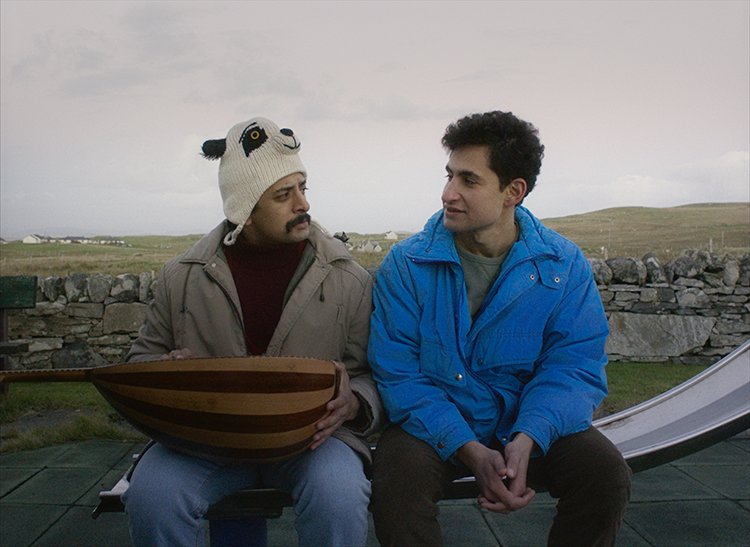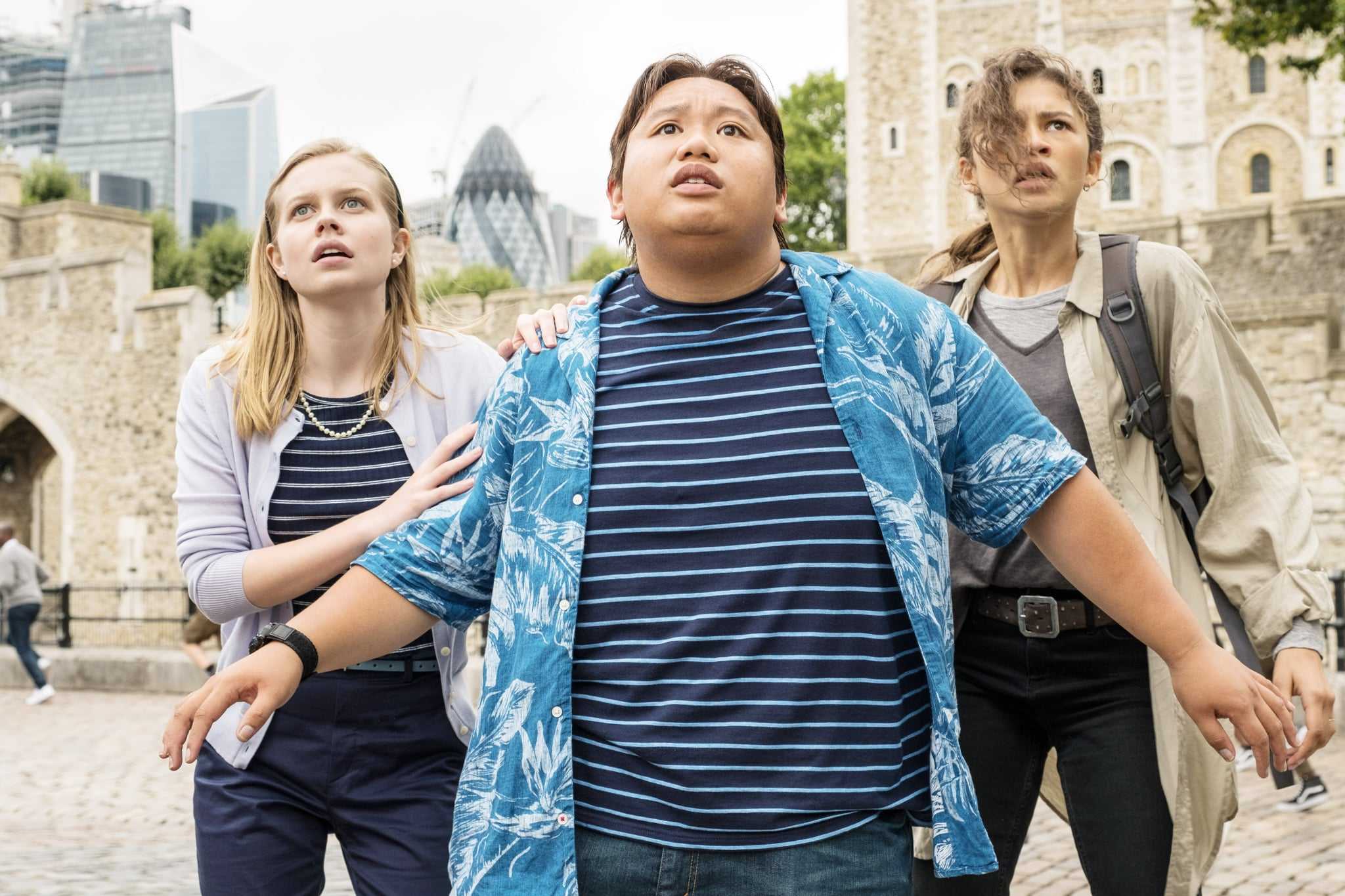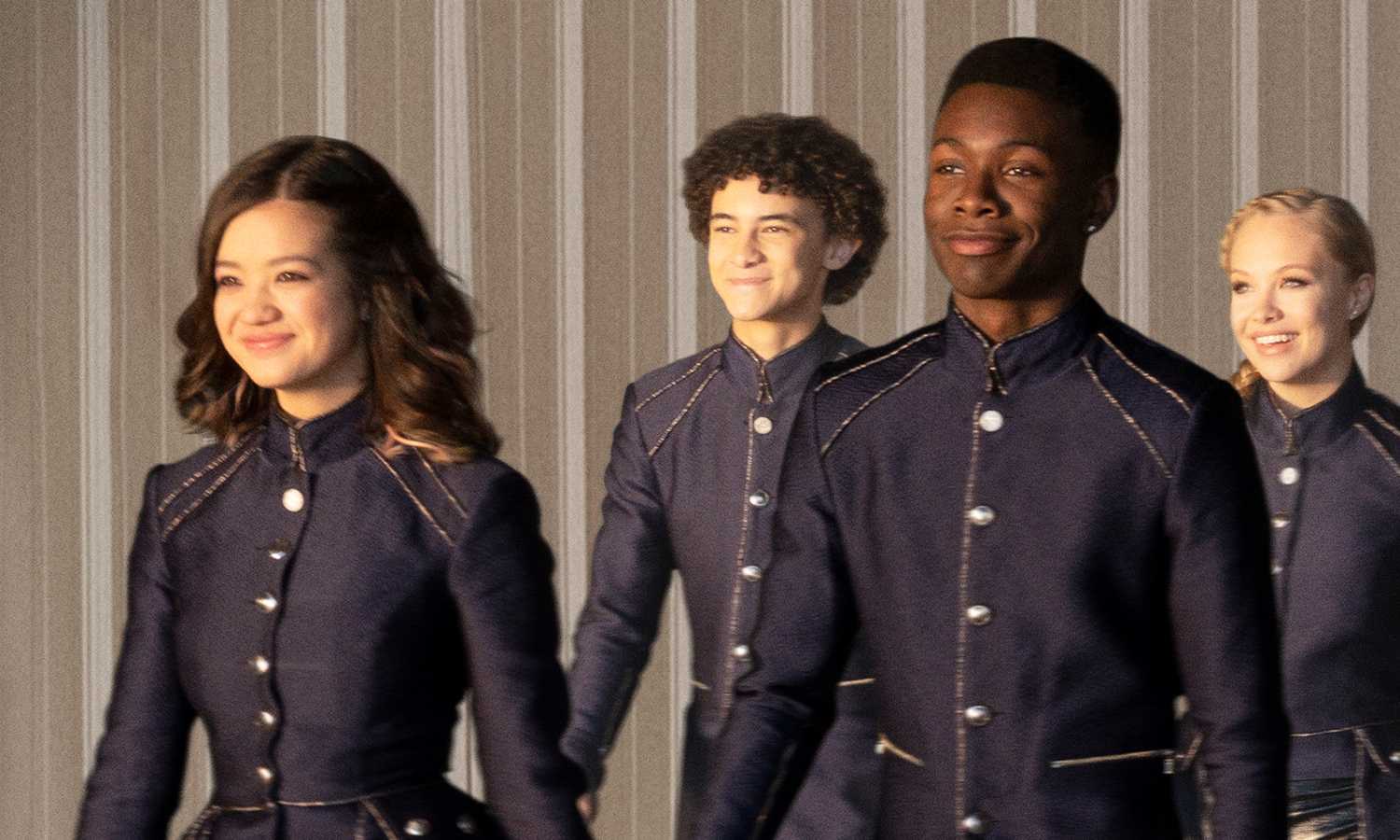BAFTA nominated festival hit Limbo is a British comedy-drama which follows the lives of a group of asylum seekers in a remote Scottish island as they await the results of their claims. The film centres on Omar (Amir El-Masry), an aspiring young Syrian musician thousands of miles from home and his family, as he connects with his new flatmates and oddball locals, attends outrageously misjudged ‘cultural awareness’ classes, discovers Friends and builds up the courage to perform at the local open mic night.
We spoke with director Ben Sharrock and star Amir El-Masry to discuss the inspiration for the brilliant characters, what it was like filming in the harsh conditions of the Scottish islands and how difficult it is to play the Oud.
How did you approach balancing the comedy and surreal moments with the more emotional drama? I think it was such a great mix.
BS: It was with a lot of work! It was a massive challenge to balance that tone. Part of that was trying to use sort of all of the tools available in the filmmaking process to balance the tone. Starting off with the actors and the performances, and the time we spent in rehearsal to balance the performances off each other, and when I’m going to hear that the dialogue aloud for the first time. #
And then in the shoot – a lot of it is creating an undertone of humour through the use of composition, the way the film is lensed, the use of colour, production design etc. At points you may have like a hat that was too colourful, so it shifts the composition over to feeling too playful.
The panda hat?
BS: Yeah, exactly. And then you’ve got to find a way to balance that and create a counterbalance to those things. And then going into the editing process, and just spending a lot of time on that, as well as the use of sound and score. And so just really looking at every single aspect to be able to do that, because it’s very difficult and it’s obviously a very serious subject matter. So, there’s a lot of pressure and responsibility to try and get that right.
Amir, what was the biggest challenge of portraying Omar? Would you say it was not laughing at certain times, like the opening awkward dancing scene?
AA-M: I guess everything really, but mainly the fact that it was an incredibly funny script, but also incredibly moving. I think being in control of my emotions was probably the hardest thing for sure. But also, the conditions were very tough, the weather was very, very unpredictable. And I think we had all four seasons in one, you know, we had everything and we had gale force winds, it was up to like 55 miles per hour.
And sheep and chickens!
AA-M: Ha yeah. Look I loved my experience on the island but you know, it did get tough at times being away from home. There was no reception, there was only one network that worked certainly at the time that we were there – and I didn’t have it, so I couldn’t easily talk to my family. But all those things helped me get into character, you know, it at least gave me a small glimpse into what the real situation would have been like.
Ben, where did the inspiration and the development come for the brilliant main characters, because they’re just so wonderfully unique, each and every one of them.
BS: There was a lot of research and I think that they became an amalgamation of lots of different people, refugees that I’ve spoken to that have been through the asylum system, to stories that I had read or friends of mine and family have known. I think the backstories of these characters are all based on reality, even thinking back to Omar and him being an oud player, that probably stems back to my time in Syria and seeing this quite well known oud player play at the Citadel in Damascus at night. And then all of those years later, wondering what happened to him after the Civil War broke out in in Syria, and that started to sort of fold into the character of Omar. So, yeah, it’s just a lot of different kinds of elements. I guess with Farhat as well, it’d be natural that him being from Afghanistan, and then sort of finding the connectors why he would maybe idolise Freddie Mercury, because of his sexuality and him being Zoroastrian and all of these things happening kind of quite naturally and organically.
So where did Friends come into it?
BS: I think with Friends, that it’s one of those things that I’ve found kind of odd. I’ve spent a lot of time living in other countries and travelling around the world and no matter where you go, everyone seems to love that series – particularly for our generation, but now it’s become very popular with the younger generation. It’s informed so much of our thinking of friendship, social interactions and the sort of journey of life and I think it’s had this massive impact all over the world. And I remember meeting a woman in China, who’s name was Monica, and she’s given herself the English name because of Friends. And I think no matter where you are, Friends is always there.
Amir, what was it like filming the really emotional closing musical performance? Did you actually learn to play the oud?
AA-M: When I got the part, I met Ben and Rouen, a producer in central London, and they brought me this oud and they’re like, let’s get to work. Yeah, it was two months practice, I was very lucky to have the composer of the piece teaching me and also an incredible player being my oud consultant there. But it didn’t come without a lot of sleepless nights and pulling my hair out and going, this isn’t going to work. But thankfully Ben very kindly left that scene as the last scene to film so you know, I’d like to think that we pulled it off. It was cramming in seven years experience into two months. But it was all about getting the shell of the piece right and holding our roots correctly and I think I think all that practice helped.
Amir, how did you perform the moving scenes in the phonebox? Were you on the phone to anyone or was it literally just you?
AA-M: I was actually on the phone to the AD! It was a lot of just tuning into the gravity of the situation and I felt very moved by it on paper. Also being very family oriented myself, and being away for a while from my own family, it’s tough – so I was like, God only knows what someone like Omar would have experienced in reality. And I remember in that scene, Ben coming up, because many times I was crying, and we’d stop and you’d say – listen, you need to kind of hold it back a bit, it’s as if you’re holding two buckets for the water and if you let it spill, then you give the audience a release, and we need them there with us until the end. And I love that imagery and I kept that with me, I kept the idea of this weight hanging over our shoulders throughout the film. So yeah, it was it was tough and there were many moments where I just had to gather myself again, but every time I watch it I’m very, very moved by her singing as well.
BS: Just quickly after that, it was really incredible seeing Amir do those scenes and I don’t understand how he managed to do them because we had a discussion before, where we were saying, okay, so how do you want to do this? Like how, what’s the best thing for you? How can you do this? And he was like, I can do the reading, and I was like really?! Okay, let’s try it. – and then we did it and he was just amazing. And it’s what you see in the film, and I think he just kind of somehow blocked everything out and just went into himself. And it’s also worth saying that most of those scenes are played out in one shot, so there’s no way to hide, you know, it’s not cutting around any performance or getting the best bits – that’s just him for one shot all the way through and it’s there was just amazing to see.
LIMBO is in UK cinemas from July 30.




